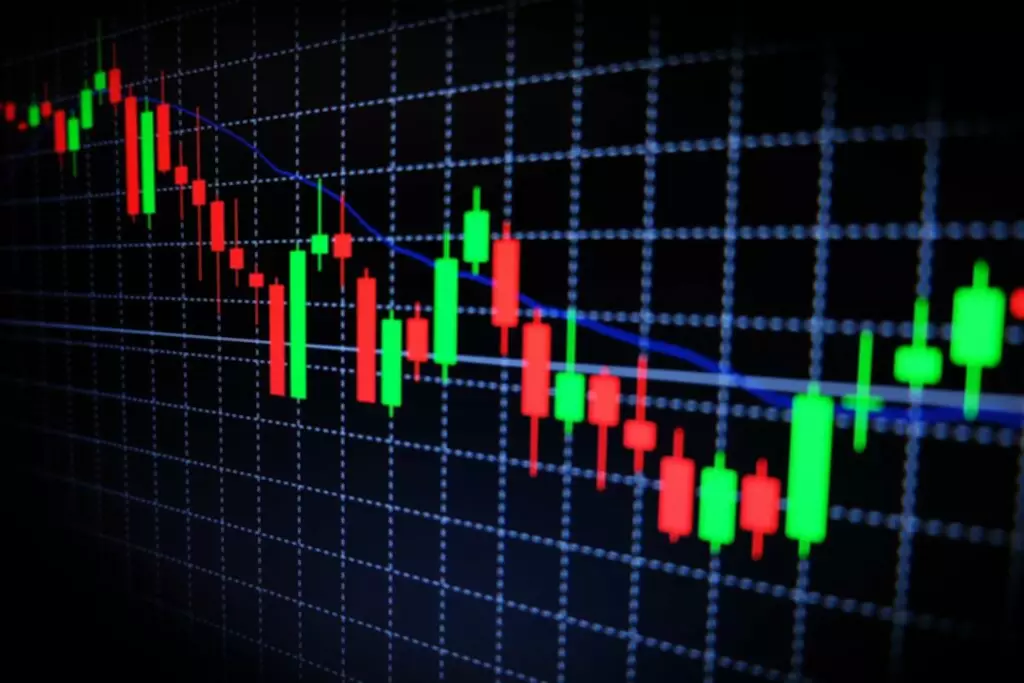Content
- Decentralized Exchanges
- The Role Of Centralized Crypto Exchanges In Sanitizing The Crypto Market: Lessons For Nigeria
- Centralized And Decentralized Exchanges
- Did You Know Gatehub Platform Offers Exchange And Trade Features?
- How Centralized Cryptocurrency Exchange Works: 2 Types Of Platforms
- Market Making
Due to competition, newly created exchanges struggle with low volume during their early stages and therefore need another source of revenue. By organizing Initial Exchange Offerings , Security Token Offerings , and Initial Coin Offerings , exchanges may collect a percentage of funds raised from these offerings. In addition, in June the Dubai Financial Services Authority published its “Guidance – Regulation of Crypto Asset Activities in ADGM” and application form to operate a crypto asset business within ADGM. The DNB also sees the possibilities of the blockchain technology underlying bitcoin. Since 2015, the DNB has built four crypto prototypes based on blockchain technology, not to launch a national crypto, but to gain insight into the technology.

A marketplace where you can buy and sell cryptocurrencies, like Bitcoin, Ether or Dogecoin. Cryptocurrency exchanges work a lot like other trading platforms that you may be familiar with. They provide you with accounts where you can create different order types to buy, sell and speculate in the crypto market. AML and money services business laws may well apply to cryptocurrency exchanges operating in Canada or with Canadian clients. However, if the digital currency exchange facilitates the trading of cryptocurrencies that are characterised as financial products the operator of that exchange will need to hold an Australian market licence with appropriate authorisations by ASIC.
Decentralized Exchanges
So far, no cryptocurrency exchange has obtained the recognition required, or an exemption from such recognition requirement, in order to allow Canadians to participate in on-exchange securities trading. Where the firm offers services to crypto-asset exchanges which effect conversions between fiat currency and cryptoassets and/or between different crypto-assets. The 5MLD streamlines member states’ regulatory regimes for virtual currency by defining certain key terms which member states will implement into their own anti-money laundering legislation. KyberSwap is a multi-chain decentralized exchange aggregator which provides traders with the best token prices by analyzing rates across over 60 DEXs across 12 chains. One of the most apparent benefits of a decentralized exchange is cutting out the middlemen and executing peer-to-peer transactions without central authorities.
Binance and other centralized exchanges are also known to assemble high-profile cyber forensics teams. Most centralized exchanges stand against money laundering activities and are on the frontline in combating terrorism financing. These exchanges set up processes and connect to a network that enable them to discourage the use of crypto trading as a means of advancing criminal objectives. KYC processes also form part of the AML/CFT regulatory arrangements put together to curb money laundering and terrorism financing.

There is no stable or fair price for Bitcoin or any other coin – the market always sets it. There are approved cryptocurrency futures products being traded on different commodities exchanges such as the Chicago Mercantile Exchange and the CBOE Futures Exchange and through swap execution facilities such as LedgerX and TeraExchange. The CFTC’s regulatory jurisdiction includes commodity futures contracts, options on futures and swaps, but generally excludes spot contracts and forward transactions unless they are leveraged or financed. The CFTC also has anti-fraud jurisdiction over the commodity spot and forward markets. In 2015, the CFTC determined that bitcoin was properly defined as a commodity.
The Role Of Centralized Crypto Exchanges In Sanitizing The Crypto Market: Lessons For Nigeria
After picking your preferred exchange sign up and go through the registration process (usually includes KYC/AML verification). California’s new law will strengthen existing pay transparency laws and impose new data reporting requirements on employers. With a similar mandate as the 5MLD in mind, Canadian legislation has placed the responsibility of implementing AML/CTF policies with certain stakeholders, including bankers, accountants, lawyers and other professions. The DNB has issued warnings relating to crypto currencies on their basis of their unregulated status which means that they are not subject to a deposit guarantee scheme nor counterparties from which losses may be recovered. Mesa is an open source interface for Gnosis Protocol, a fully permissionless DEX that enables ring trades to maximize liquidity. After the rise of the Ethereum platform, smart contracts have emerged as a game-changer in the future of Decentralized…
Nonetheless, one issue that cannot be overlooked is the allegation flying over the space that some crypto exchanges are conduit pipes for money laundering and other fraudulent activities. For instance, Binance recently revealed that the company has been at the tail end of such allegations. For instance, Binance cited how in the past weeks, it assisted the US Drug Enforcement Administration in identifying and seizing about 130 accounts linked to suspected drug money laundering in Mexico.
It allows you to buy and sell tokens using gas-less orders that are settled peer-to-peer among its users or into any on-chain liquidity source while providing MEV protection. A hot wallet is used to receive money on the crypto exchange and give payments to traders. All the funds are stored on the wallets, and users transfer assets there for trading.
As we shall see in this piece, deploying AML/CFT controls including Know Your Customer protocol are effective ways centralized crypto exchanges are leading the way in sanitizing the crypto market globally. There are two types of exchanges when it comes to differing in the hierarchies of operation and governance, known as centralized and decentralized exchanges. The DFS also has issued special “bitlicenses” to engage in certain virtual currency activities such as buying and selling specified virtual currencies and providing payment processing services for merchants accepting bitcoin in payment to several businesses. The requirements will not be imposed on mainstream inline marketplaces and social media platforms as they do not pose the same ML/TF risks.
How to Choose a Crypto Exchange for Trading and Investment? – Bitrates
How to Choose a Crypto Exchange for Trading and Investment?.
Posted: Fri, 07 Oct 2022 13:34:30 GMT [source]
Thus, decentralized exchanges do not involve third-party intermediaries as crypto traders can transact directly and the entire transaction is settled on the blockchain. With decentralization comes accountability, transparency and more security. Uniswap and Sushiswap — which run on the Ethereum blockchain are arguably the most prominent decentralized exchanges. A cryptocurrency exchange or DCE is a service/platform that enables clients to trade cryptocurrencies for other resources, such as other cryptocurrencies, standard FIAT cash or other digital currencies. They allow trading one cryptocurrency for another, the buying and selling of coins, and exchanging FIAT into crypto. Ironically, as at 2017, the CBN appeared to have acknowledged that indeed the activities of criminal elements within the crypto industry do not define the entire industry.
Centralized And Decentralized Exchanges
To understand the concept behind a decentralized exchange, first, we need to understand why cryptocurrency exchanges exist in the first place. MAS is consulting on its proposed Payment Services Bill that seeks to address AML/CFT issues relating to cryptocurrency. Under this bill, MAS intends to regulate, among other activities, virtual currency services, which is the buying or selling of virtual currency or the provision of a platform that allows persons to exchange virtual currency in Singapore. centralized cryptocurrency AML/CFT requirements will be imposed on virtual currencies intermediaries that deal in or facilitate the exchange of virtual currencies for real currencies. Unless a cryptocurrency exchange also handles fiat payments, no anti-money laundering and counter terrorist financing requirements apply; however, in practice many exchanges are voluntarily conducting AML/CTF checks. In this article we briefly consider the international regulatory response to cryptocurrency exchanges and custody providers.
- They can also be market makers that take bid-ask spreads as transaction commissions for their services or charge fees as a matching platform.
- AML and money services business laws may well apply to cryptocurrency exchanges operating in Canada or with Canadian clients.
- From an EU regulatory perspective, perhaps the most significant recent development has been the finalisation of the Fifth Anti-Money Laundering Directive .
- As a result, users don’t have to worry about losing funds to third parties.
- However, this is not the rule, and both young and experienced traders are using both types of exchanges.
Notwithstanding this a Crypto-assets Taskforce comprising of the FCA, the Bank of England and HM Treasury is due to report on the regulatory response to crypto-assets in Q3 2018. The FCA’s “Dear CEO” letter covered good practice as regards how UK banks should handle the financial crime risks posed by crypto-assets. Our Website is a financial data and news portal, discussion forum, and content aggregator, so cannot substitute for professional advice and independent verification. Our Content is intended to be used and should be used for informational purposes only.
Did You Know Gatehub Platform Offers Exchange And Trade Features?
It is also worth noting that the March 2018 European CommissionAction Plan on Fintech mentions that the EU institution will publish a report on the challenges and opportunities of crypto assets later this year in the framework of its EU Blockchain Observatory and Forum. It also defines custodian wallet providers as an “entity that provides services to safeguard private cryptographic keys on behalf of their customers, to hold, store and transfer virtual currencies.” ParaSwap is a decentralized exchange aggregator that provides the best prices over multiple DEXs on the Ethereum blockchain. They avail customer support in case you have any problems with your account.

On the other hand, with a decentralized exchange, all the account’s control remains with you. The first provides an opportunity to buy a large number of various coins and hold them for as long as needed. The second provides a smaller list of coins, but a wider choice in terms of trading style, namely the ability to short and use leverage. Other entities captured are Digital Assets Offering Platforms , Digital Assets Custodians and Virtual Assets Service Providers .
Centralized crypto exchanges are websites that serve as cryptocurrency marketplaces. Some are pure exchanges, while others, like Binance, are ecosystems that include a blockchain with their native tokens. Centralized exchanges facilitate large-scale crypto trading by keeping large amounts of coins and tokens for liquidity. The goal of decentralized exchanges is to facilitate transactions without users having to explicitly put their faith in facilitators. In short, you don’t need to trust or distrust the platform making decentralized, peer-to-peer transactions possible since no centralized entity takes custody of your funds.
How Centralized Cryptocurrency Exchange Works: 2 Types Of Platforms
The Monetary Authority of Singapore does not regulate cryptocurrency per se but has been monitoring its use to assess if regulations are required in this area. What MAS does however, is to regulate the activities that surround cryptocurrency if those activities fall within MAS’ general ambit as a financial regulator, for example, for AML/CTF purposes or ICOs involving capital market products. Further, while payment cryptocurrencies such as bitcoin are not regulated, bitcoin futures contracts trading on U.S. exchanges are regulated products in Hong Kong and can only be offered in Hong Kong by licensed entities.

Centralized and decentralized exchanges aim to achieve the same goal but through different means. For centralized exchanges, there is an element of human management supervising exchange activities. DeXes rely on automated transactions through smart contracts and liquidity pools. Centralized exchanges are still significantly more efficient, but DEX technology is catching up fast.
This is notwithstanding that cryptocurrencies run on cryptographic algorithms for security purposes. Aside from transparency, enhanced security, and immutability , other virtues of this innovation, amongst others, are decentralization, traceability, speed and efficiency. Invariably, the CBN Governor was clearly alluding to the activities of criminals who try to leverage on crypto in advancing illegal motives, but veered off track when he seemed to have relied on this position to define the whole body of players within the crypto industry. The most popular way to monetize exchanges is to charge commissions in the market. This commission pays for the trade facilitation service between the buyer and the seller.
Other advantages include a convenient and intuitive MT 4/5 terminal, a wide range of technical analysis tools, the ability to regulate leverage, minimal commissions, high liquidity, and the small likelihood of hacking. A cryptocurrency exchange is an online platform that acts as an intermediary between buyers and sellers of the cryptocurrency. Furthermore, we mentioned above that centralized exchanges also connect to certain networks to strengthen their processes. These networks are blockchain analysis networks such as Chainalysis, Elliptic, CipherTrace, etc., which assist with enhancing compliance, investigation, and risk management. Each exchange calculates the price based on its trading volume, as well as the supply and demand of its users. This means that the higher the exchange, the more market-relevant prices you get.
Additionally, a crypto-exchange needs to understand the various broker-dealer rules, registration requirements and exemptions under the U.S. Securities Exchange Act to determine whether it would need to register as an exchange with the SEC and the Financial Industry Regulatory Authority or qualify as something else, such as an alternative trading system or a bulletin board. Also, all reporting entities that receive $10,000 or more in virtual currency will have recordkeeping and reporting obligations.
Market Making
In the early days, the only way to get a hold of cryptocurrencies was to mine it or get it from another person, willing to sell directly to you. That is why people started looking for a simpler and safer option to get cryptocurrencies. Similarly, custodians who hold crypto-assets that are characterised as financial products are subject to ASIC regulation under the Corporations Act 2001.
First, the primary difference between decentralized and centralized exchange is that you must sign up and verify your account with a centralized exchange. It is also worth noting that both types of exchanges can be hacked, and there is an issue of trading bots because of which users often lose money. On 6 January 2022, Forbes reported how Coinbase foiled an attempt to steal funds in a bank account belonging to an elderly man of North Carolina, using bitcoin as a conduit pipe.
They are required to hold an Australian financial services licence that authorises them to provide custodial or depository services to clients with respect of financial products, and need to comply with obligations imposed upon them as AFSL holders. A decentralized exchange is a cryptocurrency exchange which operates in a decentralized way, without a central https://xcritical.com/ authority. One of the major drawbacks of most decentralized exchanges is the lack of functionality compared to centralized exchanges. As decentralization technologies continue to evolve, we can expect decentralized exchanges to offer a broader range of products and features. This is another prominent reason why decentralized exchanges are becoming popular.
In making a strong case for centralized exchanges, Senator Ihenyen had explained that there is “the need for regulators to adopt a regulatory approach that requires VASPs to implement adequate KYC/AML/CFT procedures rather than drive them underground. Rather than deny CEXs access to banking and financial services in Nigeria, CEXs should be recognized as Virtual Assets Service Providers and be required to comply with KYC/AML/CFT regulations in Nigeria” and, of course, global standards. This is because all of the user information and funds are stored in one central location.
You should take independent financial advice from a professional or independently research and verify, any information that you find on our Website and wish to rely upon, whether to make an investment decision or otherwise. Nothing contained on our Site constitutes a solicitation, recommendation, endorsement, or offer by defiprime or any third party service provider to buy or sell any securities or other financial instruments. Keep in mind that we may receive commissions when you click on some links on our site. We try our best to keep things fair and balanced, in order to help you make informed decision. Multichain is a fully decentralized cross chain swap protocol, based on Fusion DCRM technology, with automated pricing and liquidity system. Bancor is an on-chain liquidity protocol that enables automated, decentralized token exchange on Ethereum and across blockchains.
